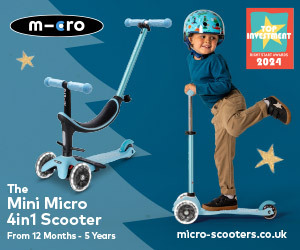He's got a lot of energy!
He's hyperactive!
It’s probably only a phase.
It seems to me your child has a real behaviour problem, but I don’t have any advice for you because my child has never behaved that way.
She’s such a lovely, quiet little girl compared with my Maisy.
Your child is dull and possibly stupid too.
They’re only babies once.
I have a lot more experience in bringing up babies than you do – you still have a lot to learn.
Isn't he bright?.
In my view, he’s a bit too clever for his own good.
Try staying a bit more relaxed around him.
You are solely responsible for your son’s behaviour lapses.
She's got a good appetite.
She looks a bit on the fat side to me.
He's got a good set of lungs on him!
Can't you get him to stop crying?
He's a real mummy's boy, isn't he?
You've made a rod for your own back.
She’s so lucky to have so many toys.
She’s spoiled.
Isn't she adventurous ?
Can you please stop her from climbing up my bookshelves?
You must have a lot of energy to keep up with him.
Your child is exhausting and you look shattered.
You must have a lot of patience.
Your child is driving me crazy!
She's got a mind of her own.
She's out of control.
Is your child reading yet?
Mine is!
Psychologists describe these sort of comments as ‘social lubricant’
which is a way of using ambiguous statements to make what you are
saying more socially acceptable. Ambiguity allows you to hint at the
truth without saying it in so many words.
Being economical with the truth is a behaviour that often benefits
the person making the statement, rather than the person receiving it.
It might appear that parents are anxious not to offend when they use
these ambiguous statements. But actually, the purpose of the ambiguous
statement is more for them: they want to avoid confrontation.
There is no foolproof way of knowing if someone is telling a white
lie or being economical with the truth. But there are often behaviour
clues that should make you suspicious. These include:
Avoidance of eye contact
Usually someone makes eye contact at least
half the time they are talking to you. Are they looking at the floor or
at their fingers when they’re speaking? Eye contact and a smile indicate
a genuine statement.
Change of voice
A variation in pitch of voice or rate of speech can
be a sign of being economical with the truth, as can lots of ‘umms’ and
‘ahhs’. ‘Ummm, she’s a chatterbox, isn’t she?’ suggests something is
being held back.
Confidence boosting
Parents are very competitive and the odd
ambiguous statement thrown into the conversation can be a way of
highlighting the difference between your little Joey and their little
Sophie. This isn’t necessarily aimed at the other parent, but acts to
boost the one making the statement by highlighting the wonderful traits
of their child.











